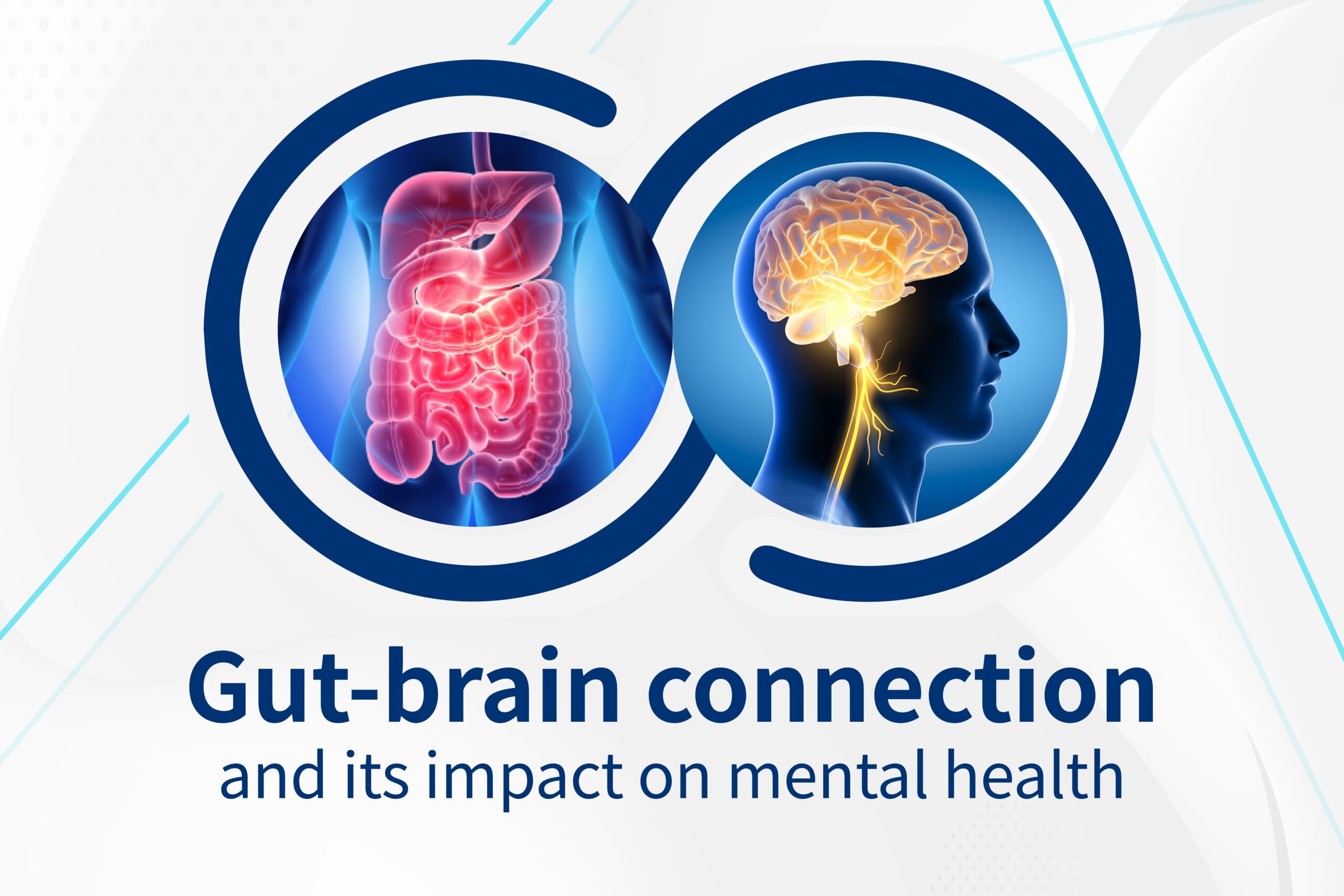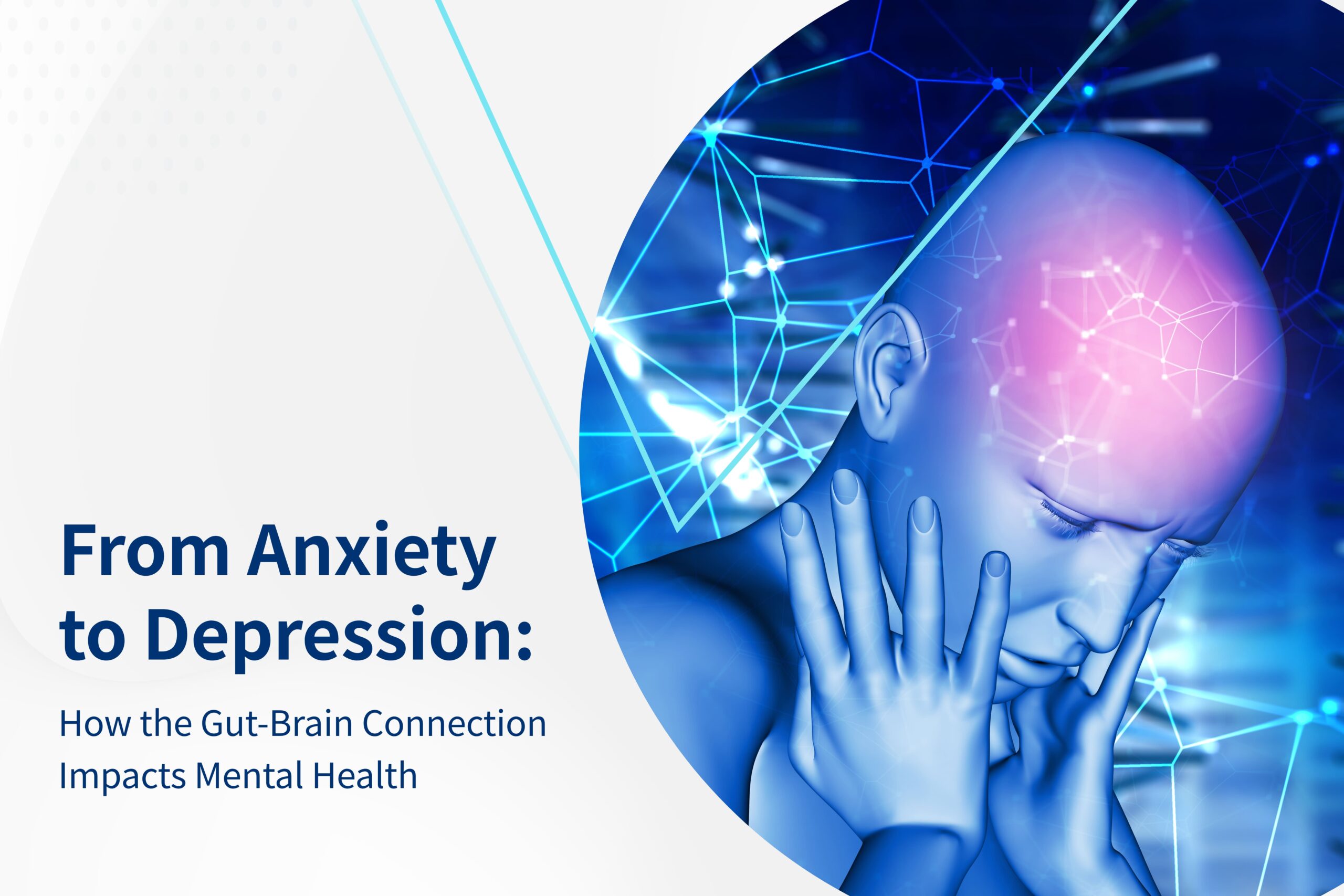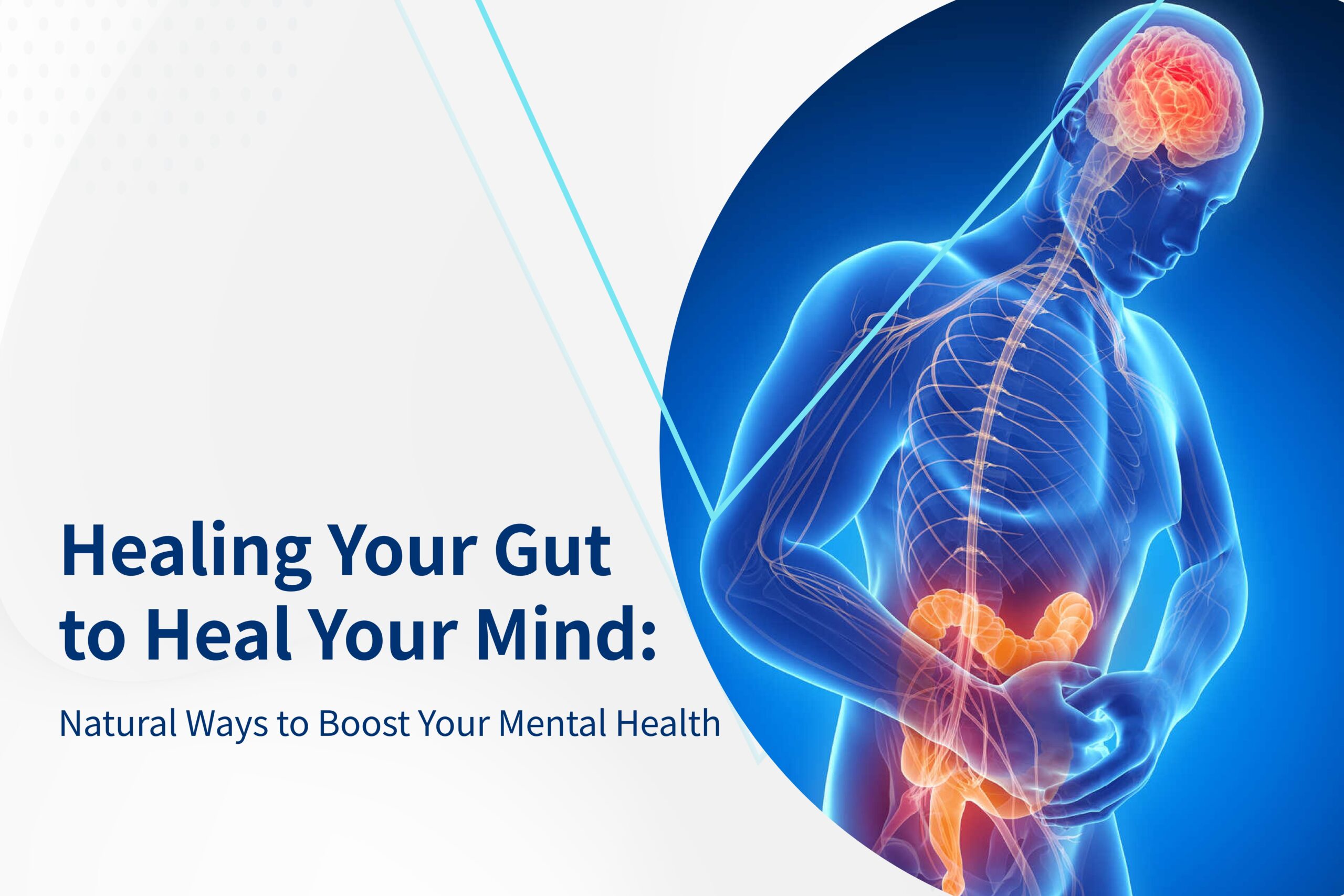Gut-Brain Connection And Its Impact On Mental Health

Have you ever had a “gut feeling” about something? It turns out that your gut and your brain are more connected than you might think. Recent research has uncovered the complex gut-brain connection and its impact on mental health, a direct communication pathway between the gut’s enteric nervous system and the brain’s central nervous system.
This communication pathway is so powerful that it can influence our mental health and even our emotions.
So, how exactly does our gut affect our brain, and what impact does it have on our mental health? In this blog, we’ll dive deep into the fascinating world of the gut-brain connection and explore how it can cause anxiety, depression, and stress-related disorders. Get ready to be amazed by the power of your gut and its impact on your mental well-being!
Communication Pathways between the Gut and the Brain
Did you know that your gut and brain are constantly communicating with each other? It’s true! There are multiple communication pathways that link the two, and they play a vital role in regulating our mental and physical health.
The gut is connected to the brain through a complex network of nerves, hormones, and signaling molecules. This connection is known as the gut-brain axis.
The gut has its own nervous system, called the enteric nervous system, which is made up of more than 100 million nerve cells that line the digestive tract. This system controls the movement of food through the digestive tract and helps to regulate the secretion of digestive juices.
The gut also produces many of the same neurotransmitters as the brain, including serotonin, dopamine, and gamma-aminobutyric acid (GABA). These neurotransmitters are involved in regulating mood, emotions, and behavior.
The gut is also home to trillions of microorganisms, collectively known as the gut microbiome. These microorganisms play a crucial role in digestion, immune function, and the production of certain neurotransmitters.
Research has shown that the composition of the gut microbiome can have a significant impact on mental health.
In addition, the gut and the brain are connected through the vagus nerve, which is one of the largest nerves in the body. The vagus nerve runs from the brainstem to the abdomen, and it carries signals in both directions.
This means that the gut can send signals to the brain, and the brain can send signals to the gut.
This bidirectional communication allows the gut and the brain to influence each other in important ways.
So, it’s clear that the communication pathways between the gut and the brain are essential for our overall well-being.
From Anxiety to Depression: How the Gut-Brain Connection Impacts Mental Health

Did you ever wonder why you feel queasy before a big presentation or experience tummy troubles during stressful times? It’s because the gut and brain are closely linked!
Anxiety and depression are two of the most common mental health issues that people experience, and they can be extremely debilitating. While many factors can contribute to these conditions, one that is often overlooked is the gut-brain connection.
Recent research has shown that the health of the gut can have a significant impact on mental health. When the gut is out of balance, it can lead to inflammation, which can, in turn, affect the brain and lead to symptoms of anxiety and depression.
But don’t be fooled into thinking that functional GI conditions are all in your head. Both physical and psychological factors play a role in causing pain and other bowel symptoms.
That’s right, stress, depression, and other psychosocial factors can affect how your gut works, which in turn impacts the symptoms you experience.
On top of that, people with functional GI disorders tend to be more sensitive to pain signals from their gut because their brains react more strongly to them. So, if you’re under stress, the pain you’re feeling could seem even worse than usual.
So what can you do to support a healthy gut and promote good mental health? Here are a few tips:
- Eat a healthy, balanced diet that is rich in fiber and includes plenty of fruits and vegetables.
- Avoid processed foods and refined sugars, which can disrupt the balance of the microbiome.
- Consider taking a high-quality probiotic supplement to support the growth of beneficial bacteria in the gut.
- Reduce your exposure to environmental toxins, which can also disrupt the microbiome.
- Manage your stress levels through techniques like meditation, yoga, or deep breathing exercises.
By taking steps to support a healthy gut, you can not only improve your digestive health but also promote good mental health and reduce your risk of anxiety and depression. So next time you’re feeling stressed or anxious, remember that taking care of your gut may be just as important as taking care of your mind.
Probiotics and Psychobiotics: The Future of Mental Health Treatment

Probiotics and Psychobiotics are exciting new frontiers in the field of mental health treatment. By targeting the gut-brain axis, these treatments offer a safe and effective way to improve mental well-being and reduce symptoms of anxiety, depression, and other mental health disorders.
As more research is conducted in this area, it is likely that we will see an increased use of probiotics and Psychobiotics in the treatment of mental health conditions, leading to a brighter future for those suffering from these debilitating disorders.
Healing Your Gut to Heal Your Mind: Natural Ways to Boost Your Mental Health

Having good digestion is a vital component of maintaining good gut health. To digest food properly, our bodies must be in a parasympathetic state, also known as the “rest and digest” mode.
Without this relaxed state, our bodies are unable to produce the necessary gastric juices to absorb the nutrients from our food, leading to inadequate absorption of vitamins, minerals, and other essential nutrients needed to maintain a healthy body and brain.
To reach this restful state, try practicing deep breathing exercises before eating. If you need help getting started, there are numerous apps available to guide you.
Improving gut health is crucial for mental health as well. While therapy has helped many people with anxiety, OCD, and overall mental well-being, taking care of your gut can also help manage these symptoms.
By incorporating these suggestions into your daily routine, you can work towards achieving a healthy gut and improving your mental well-being.
Your Best Gut Health with Dr. Vijaykumar C. Bada
Dr. Vijaykumar Bada, an experienced Surgical Gastroenterologist based in Yashoda Hospitals Hitec City, Hyderabad. With over 15 years of expertise in his field, he is known for his transparent approach and accurate guidance that puts his patients at ease.
Dr. Vijaykumar is an expert in both emergency and non-emergency surgeries for Gastrointestinal Diseases, Liver, Laparoscopic Surgery, Bariatric Surgeries, Colorectal Surgery, Gastrointestinal Surgery, and Acute Pancreatitis Treatment. You can trust him to provide the best possible care for your health needs.
Have Any Question?
Are you looking for a Solution for your problem? You can call us or just drop your question here.
Stay Connected with
Dr. Vijaykumar C. Bada

Dr. Vijaykumar C. Bada is the best Gastroenterologist in Hyderabad city of Telangana.
- Flexible Appointments & Urgent Care
Dr. Vijaykumar C. Gastroenterologist
Design & Developed by Pointofviewer
Copyright © 2021. All rights reserved.
